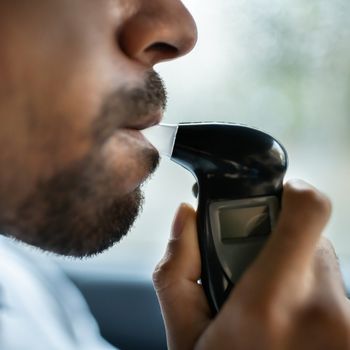Connecticut first introduced its IID law in 2015, mandating that drivers with a second or subsequent OUI offense install these devices in their vehicles. Over time, the requirement has expanded to include anyone whose license has been suspended due to an OUI-related offense. If you're facing this situation or simply want to understand how IIDs work, here’s what you need to know. An ignition interlock device is installed in your vehicle after a drunk or drugged driving offense. Before starting the engine, you must blow into the device to check for alcohol or drug presence. If the device detects a BAC of .025 or higher (or lower if you're under 21), the car won’t start. A record of the test is also sent to the Department of Motor Vehicles (DMV). But that’s not all. Throughout your drive, the device may prompt you for random retests to ensure you remain sober. This helps prevent individuals from driving under the influence even after starting the car. In Connecticut, once an IID is installed, there are several rules you must follow: Even if you were only arrested—not convicted—Connecticut often requires an IID for those with a DUI or OUI incident. An arrest typically involves a BAC of .08 for adults and .02 for those under 21. To get your license back, you must apply for a Special Operator’s Permit before your suspension ends. The process starts 30 days after your arrest and lasts 45 days. Once that period is over, you can regain driving privileges—but only if the IID is installed. The length of time you need the device depends on your age and the number of offenses: If you refused an OUI test, including breathalyzer, chemical, or urine tests, you’re still required to install an IID. This rule also applies to those who caused vehicular assault or manslaughter. Importantly, the IID period begins when your license is reinstated—not when the device is installed. However, if you receive another suspension while using the device, the timeline resets based on your latest offense. If you're working to restore your license after an OUI or DUI, DaSilva’s Auto Body can help. We offer professional installation of ignition interlock devices. Contact us today to schedule your appointment and take the next step toward getting back on the road safely. Knapsack Sprayer,Electric Backpack Sprayer,Knapsack Power Sprayer,Battery Operated Backpack Sprayer Gongzhuling Huaxi Agricultural Machinery Manufacturing Co.LTD , https://www.hxzbjx.com When someone is caught driving under the influence of alcohol or drugs, it's common to assume their license will be suspended. However, things have become more complicated in recent years. Many states now require the use of ignition interlock devices (IIDs) as part of DUI or OUI enforcement.
When someone is caught driving under the influence of alcohol or drugs, it's common to assume their license will be suspended. However, things have become more complicated in recent years. Many states now require the use of ignition interlock devices (IIDs) as part of DUI or OUI enforcement.What Is an Ignition Interlock Device?
License Suspension and Using an IID